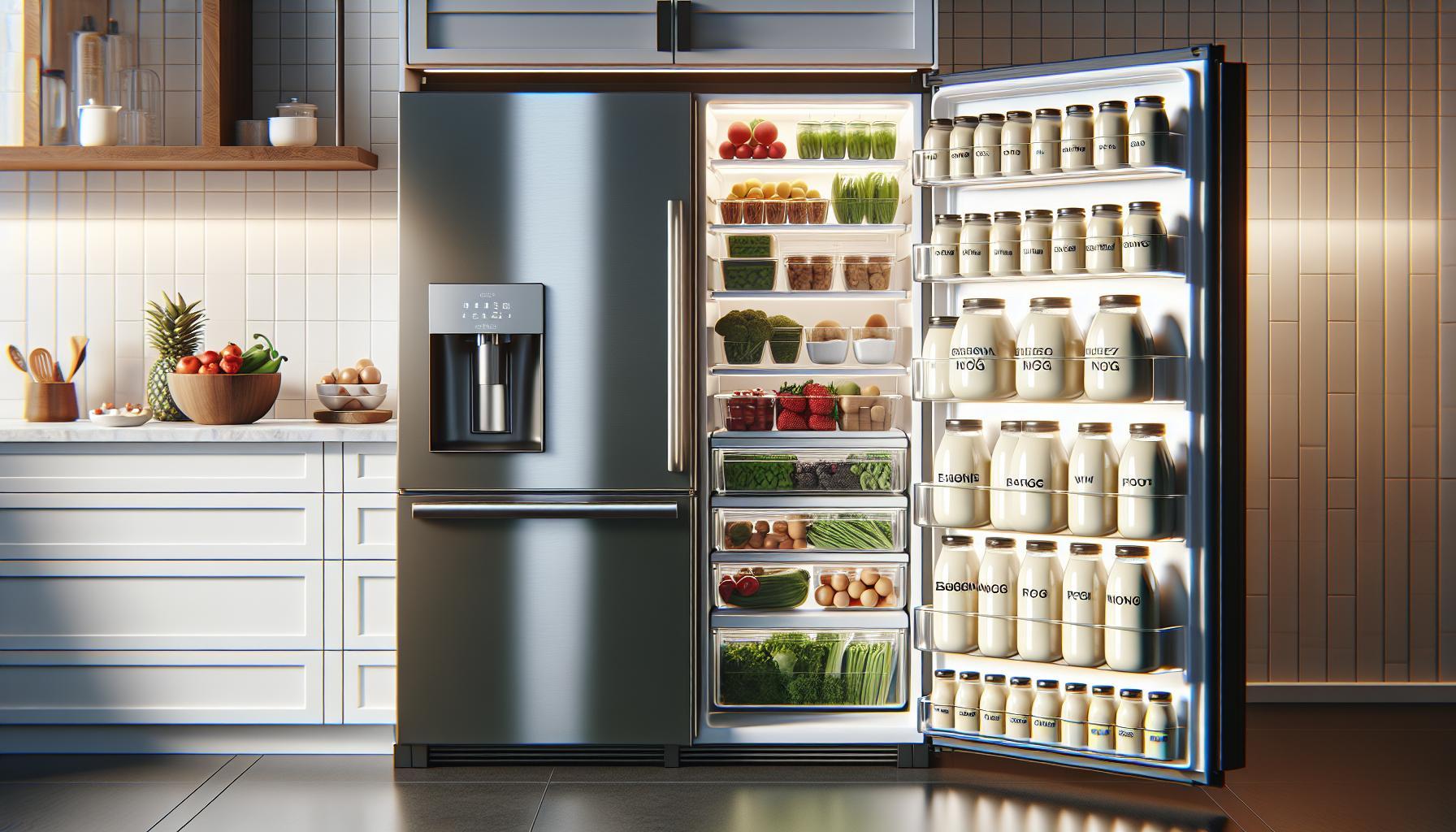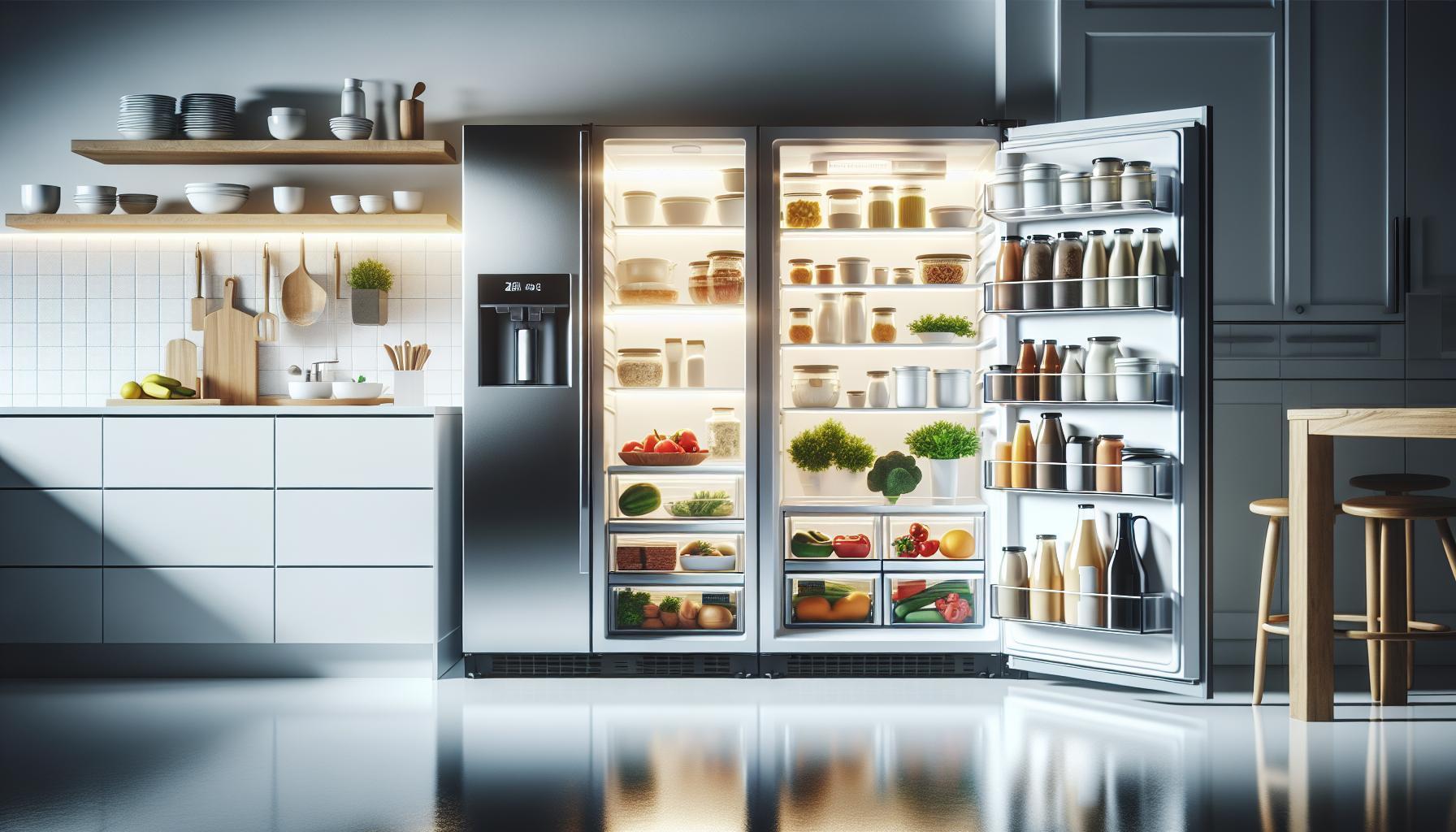Eggnog is a festive holiday favorite, but many people wonder how long it can safely be stored in the fridge. Enjoying homemade or store-bought eggnog is a delightful tradition, yet proper storage is essential to avoid foodborne illnesses. Understanding how to keep your eggnog fresh not only preserves its creamy taste but also ensures your family can enjoy this seasonal treat without worry.
If you’ve ever been unsure about the shelf life of your leftover eggnog, you’re not alone. Tasting that rich, sweet blend of cream, eggs, and spices creates a cozy vibe, but the last thing you want is to spoil the celebration with expired or unsafe beverages. In this guide, we’ll explore the recommended storage times and best practices to keep your holiday eggnog both delicious and safe to drink. Ready to make the most of your holiday cheer? Let’s dive in!
How Long Does Eggnog Last: Storage Secrets Revealed
Eggnog is a beloved holiday beverage, but many people often wonder about its shelf life and how to store it properly for safety and taste. When stored correctly in the refrigerator, homemade eggnog typically lasts about 3 to 5 days. Store-bought eggnog, on the other hand, often comes with a “sell by” or “use by” date, which can be quite helpful. Generally, unopened eggnog can last for 2 to 3 weeks past its expiration date if kept refrigerated, while opened eggnog should be consumed within 7 to 10 days.
To maximize freshness, it is critical to ensure your eggnog is stored in an airtight container. This limits exposure to air and potential contaminants. Keeping eggnog chilled at a temperature of 40°F (4°C) or lower also helps maintain its quality. Using clean utensils when pouring can prevent introducing bacteria or other pathogens into the drink, ensuring it remains safe for consumption.
If you are ever in doubt about whether your eggnog is still good, it’s wise to perform a simple sensory check. Pay attention to changes in smell, appearance, or consistency. If anything seems off, it’s best to err on the side of caution and dispose of it. By following these guidelines, you can enjoy this festive drink while ensuring safety and quality throughout the holiday season.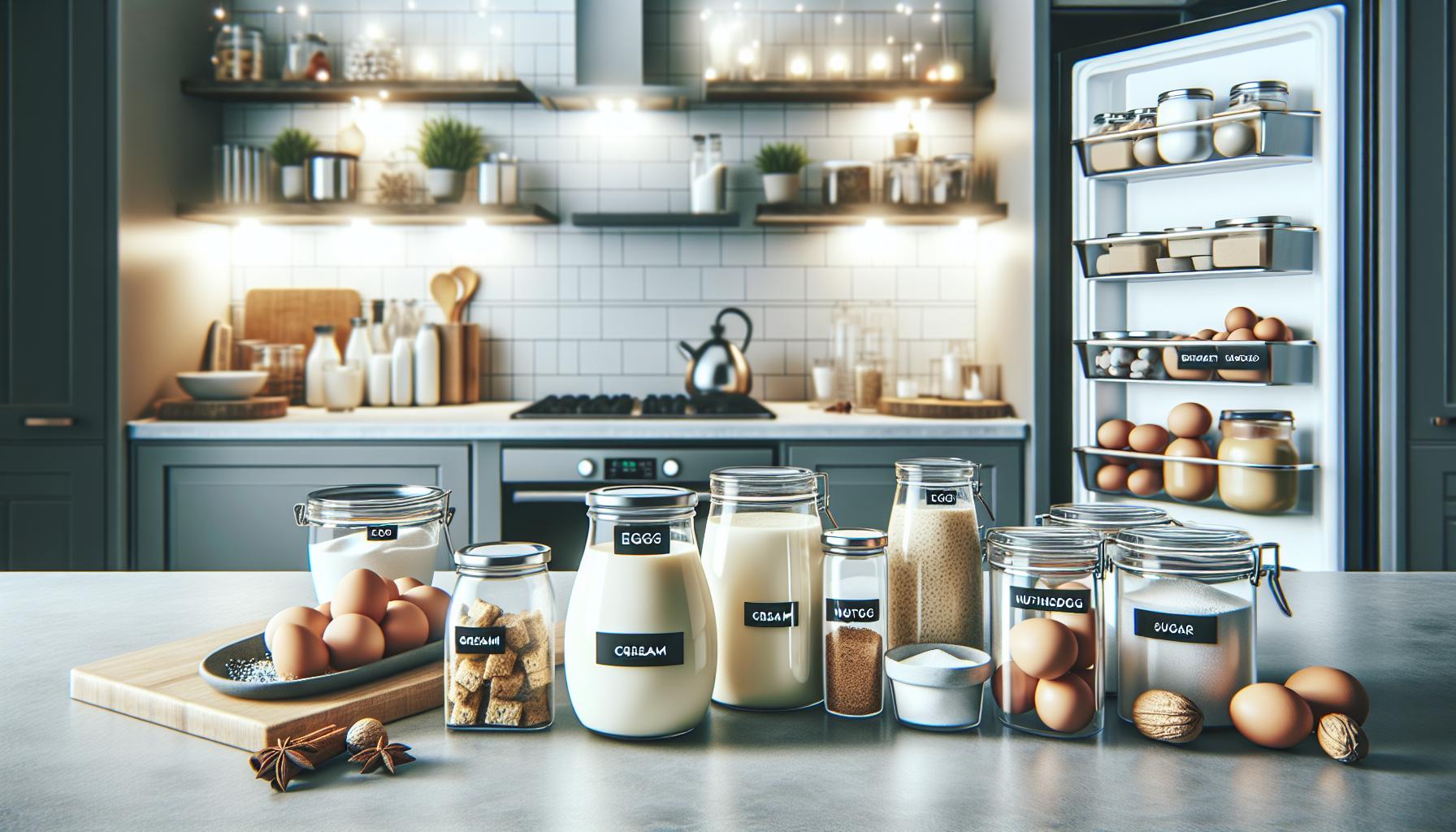
Understanding Eggnog Ingredients and Their Shelf Life
Eggnog is a delightful holiday staple, but many people might not realize that the ingredients play a crucial role in determining how long this creamy concoction lasts. Traditional eggnog recipes typically include fresh eggs, cream, milk, sugar, and spices, all of which contribute to its rich flavor but also impact its shelf life due to their perishable nature. Understanding these elements can help you enjoy your festive drinks safely.
Fresh eggs serve as the primary base for classic eggnog, providing a smooth texture and rich flavor. However, they are also a potential breeding ground for bacteria like Salmonella if not handled properly. This is why homemade eggnog, which uses fresh eggs, should be consumed within 3 to 5 days of preparation when stored in the refrigerator. On the other hand, store-bought eggnog typically uses pasteurized eggs, giving it a longer shelf life. Unopened cartons of commercial eggnog can last up to 2 to 3 weeks past the expiration date, provided they are kept continuously refrigerated.
The addition of cream and milk not only enhances the richness of eggnog but also affects its longevity. Dairy products generally have a shorter shelf life; thus, proper storage is essential. Always keep eggnog in an airtight container to reduce oxygen exposure, which can lead to spoilage. Additionally, ensuring it’s stored at or below 40°F (4°C) minimizes bacterial growth. It’s wise to regularly check your eggnog for any signs of spoilage, such as curdling or off odors, to ensure your holiday cheer remains safe and enjoyable.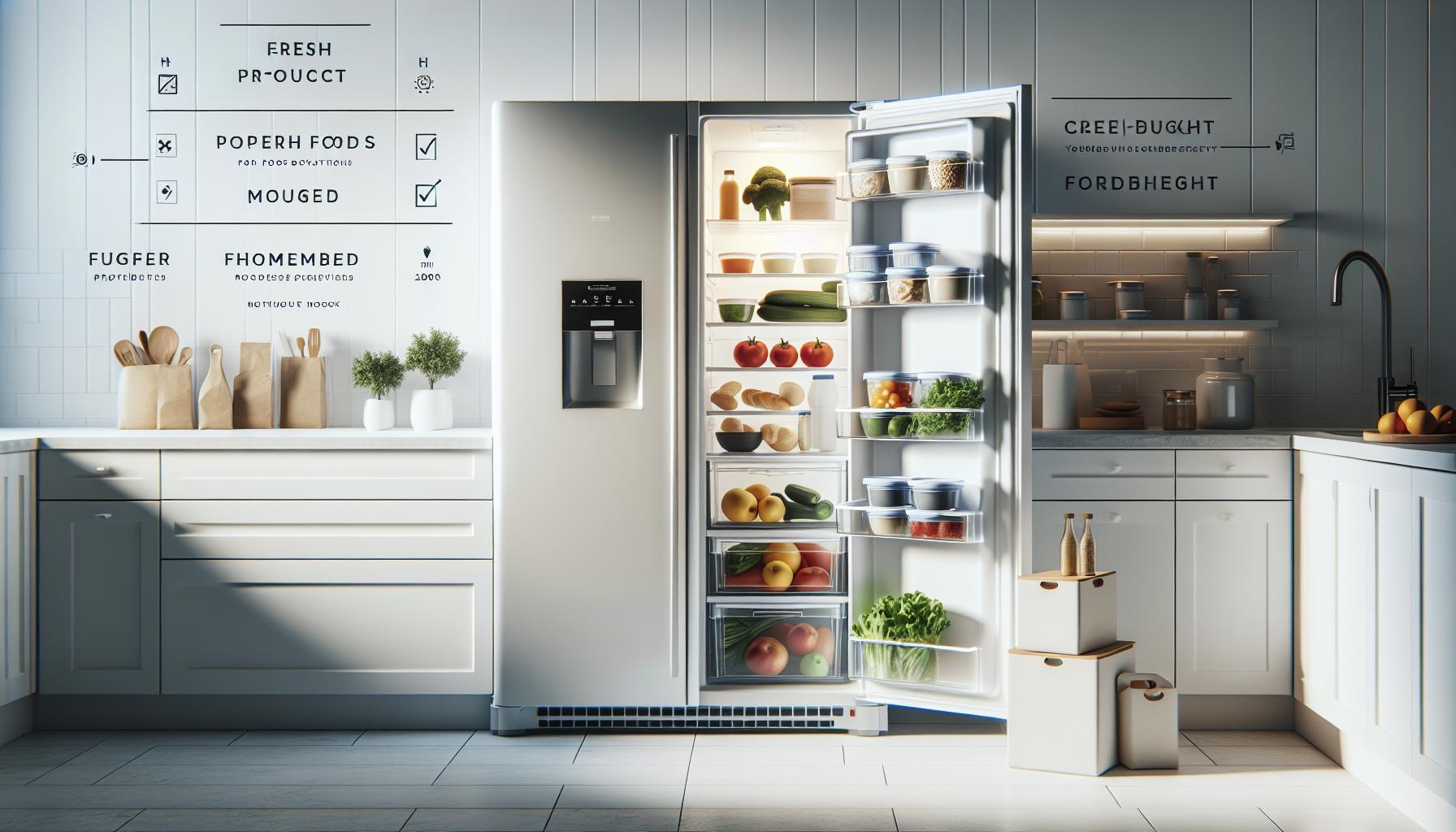
Homemade vs. Store-Bought: Longevity Comparison
When it comes to eggnog, the choice between homemade and store-bought varieties can significantly influence how long your festive drink lasts. Homemade eggnog, crafted with fresh ingredients, delivers that classic cozy flavor but poses some safety and longevity challenges. Typically, it should be enjoyed within 3 to 5 days after preparation when stored in the refrigerator. This shorter lifespan is largely due to the use of raw eggs, which, if not properly handled, can harbor bacteria like Salmonella. For this reason, it’s crucial to ensure that your homemade concoction is refrigerated promptly and kept in an airtight container to minimize spoilage risks.
On the other hand, store-bought eggnog often utilizes pasteurized eggs and additional preservatives, extending its shelf life significantly. An unopened carton can last 2 to 3 weeks beyond its printed expiration date, provided it is continuously refrigerated. Once opened, however, the longevity of store-bought eggnog decreases, typically retaining its best quality for about 5 to 7 days. This makes it a more convenient option for families who may not consume eggnog daily but want to enjoy it throughout the holiday season without the need for frequent preparation.
Understanding the differences in longevity between these two forms of eggnog offers consumers the chance to plan their holiday gatherings effectively. If you prefer the rich flavor of homemade eggnog, consider making smaller batches to ensure you can consume it all within the safe timeframe. Conversely, if you opt for store-bought for convenience, remember to adhere to opened and unopened storage guidelines for optimal safety and enjoyment. This way, you can savor your eggnog worry-free, allowing more time to enjoy those cherished moments with family and friends.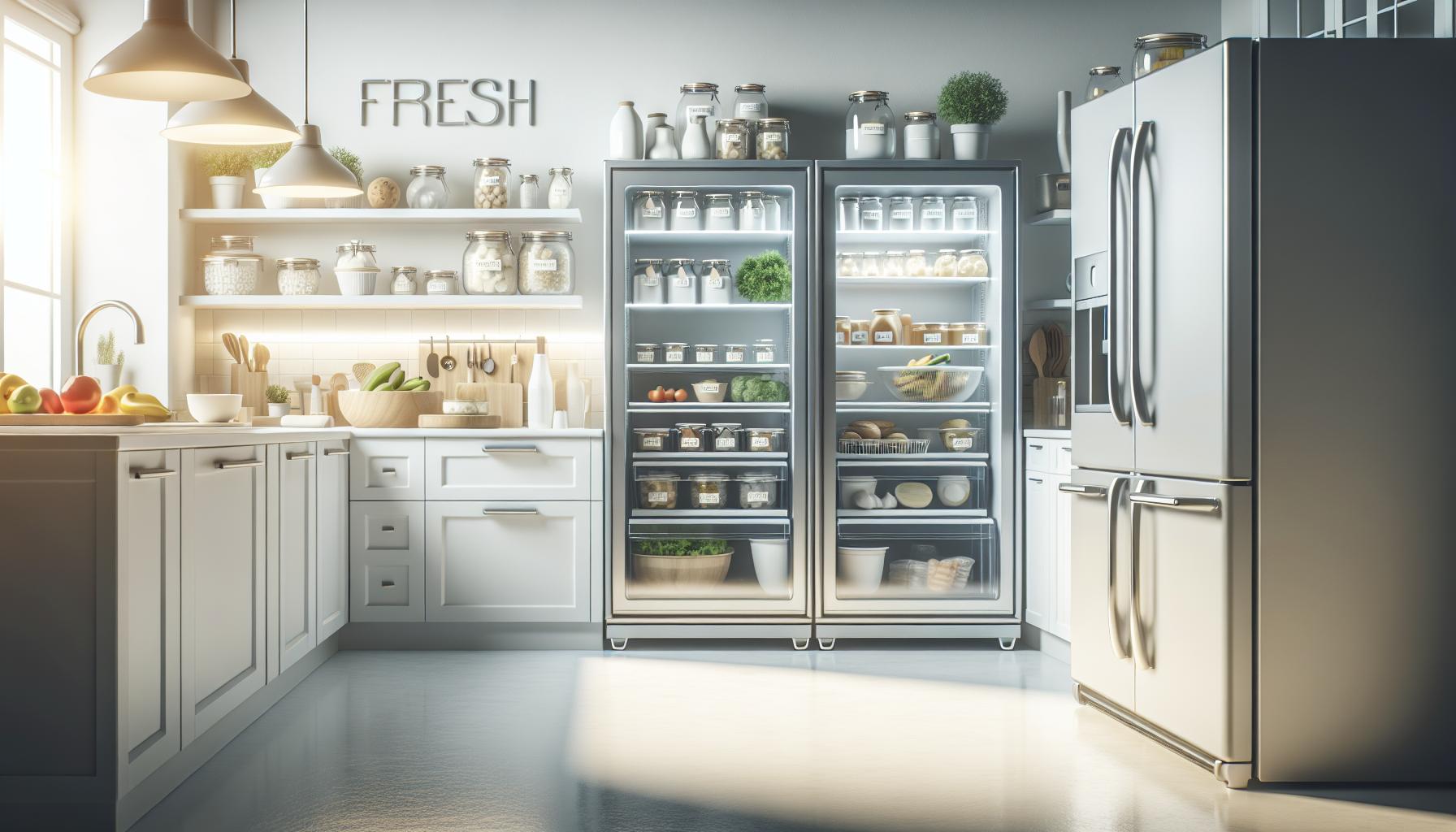
Signs Your Eggnog Has Spoiled: What to Look For
Spoiling eggnog can lead to a less-than-festive experience, especially during holiday gatherings. The creamy, rich texture that you love can quickly transform into an unpleasant surprise if you aren’t vigilant about its freshness. Recognizing the signs of spoiled eggnog is crucial for avoiding foodborne illnesses, particularly due to the use of raw eggs in homemade versions. Here are important indicators to look for that can signal your eggnog has gone bad.
First, check the smell. Fresh eggnog has a sweet and spiced aroma, typically reminiscent of vanilla, nutmeg, and cream. If the eggnog has developed a sour or off-putting odor, it is a strong sign that it has spoiled. Additionally, take a look at the texture. Properly stored eggnog should be smooth and creamy. If you notice any curdling, separation, or chunky consistency, it’s best to discard it.
Next, consider the taste. If the eggnog looks and smells fine, but when tasted it has an unusual flavor-be it sour, off, or otherwise different from the fresh experience-it’s an indication that it should not be consumed. For homemade eggnog, remember the guideline of consuming it within 3 to 5 days, and for store-bought, aim to use it within 5 to 7 days after opening, while noting the expiration date on the carton.
Moreover, always be mindful of the environment in which the eggnog has been stored. If it has been left out at room temperature for more than two hours, its safety is compromised. Always prioritize safety over waste; if in doubt, it’s better to err on the side of caution and throw it away. By keeping these signs in mind, you can enjoy your eggnog throughout the holiday season without a hitch.
Proper Storage Techniques for Eggnog Safety
When it comes to enjoying your favorite holiday beverage, proper storage techniques are crucial for maintaining freshness and safety-especially with eggnog, which often contains raw eggs and dairy. To ensure that your eggnog remains delicious and safe to consume, it’s essential to follow some straightforward storage guidelines.
Firstly, always store your eggnog in the refrigerator, ideally at a temperature of 40°F (4°C) or below. For homemade eggnog, aim to consume it within 3 to 5 days after preparation. If you have purchased store-bought eggnog, refer to the expiration date on the carton and plan to use it within 5 to 7 days after opening. An airtight container is your best bet for preserving freshness, as it prevents exposure to air and potential contaminants. Make sure to seal the container tightly before placing it in the fridge.
It’s also important to keep your eggnog away from the fridge door, where temperatures can fluctuate due to frequent opening and closing. Instead, store it at the back of the refrigerator, where the temperature is generally more consistent and cooler. If you ever find yourself unsure whether your eggnog is still good, remember these storage principles: avoid leaving your eggnog at room temperature for more than two hours, and always check for spoilage signs such as off smells, curdled textures, or sour taste before indulging.
If you want to extend the life of your eggnog, consider freezing it. While freezing homemade eggnog is possible, it may alter the texture slightly. If you choose this route, pour the eggnog into a freezer-safe container, leaving some space at the top to allow for expansion. It can be frozen for up to six months. Once you’re ready to enjoy, thaw it in the fridge and give it a good stir before serving to help restore its creamy texture. By following these storage tips, you can have peace of mind knowing your eggnog will be safe and satisfying during your holiday celebrations.
Freezing Eggnog: Is It Possible?
Freezing eggnog is indeed possible, and it can be a great way to extend the life of this beloved holiday beverage. Many people wonder if the freezing process will disrupt the creamy texture and flavor that eggnog is known for. While there may be a slight change in consistency, most of the taste remains intact, allowing you to enjoy that festive flavor even after the holiday season.
To freeze your eggnog properly, start by choosing a high-quality, freezer-safe container. It’s advisable to use an airtight, plastic container or a heavy-duty freezer bag. Before pouring the eggnog into the container, leave some space at the top; liquids expand when frozen, and allowing for this expansion will prevent any spills or breakage. Once sealed, label the container with the date to keep track of how long it has been in the freezer. Eggnog can be frozen for up to six months without a significant loss in quality.
When you’re ready to enjoy your frozen eggnog, simply transfer it to the refrigerator and allow it to thaw slowly. This gradual thawing process helps maintain its texture and creamy consistency. After thawing, it’s advisable to stir or shake the eggnog thoroughly before serving to re-emulsify any ingredients that may have separated during freezing. By following these steps, you can enjoy delicious homemade eggnog all year round, not just during the holidays!
Creative Ways to Use Leftover Eggnog
There’s a world of delightful possibilities when it comes to using leftover eggnog, transforming this rich holiday staple into exciting new dishes and beverages. Rather than letting any excess sit in your fridge, consider these creative ways to repurpose it while also ensuring food safety.
Baking with Eggnog
Eggnog can be a fantastic ingredient in baking. Its creamy texture and spices can enhance the flavor of various baked goods. Here are a few ideas:
- Eggnog Pancakes or Waffles: Replace the milk in your pancake or waffle batter with eggnog. This will add a festive twist to your breakfast.
- Eggnog Muffins: Incorporate eggnog into muffin recipes for a moist texture and rich flavor. Pair it with nutmeg and cinnamon for extra holiday cheer.
- Eggnog Cake: Use eggnog instead of milk in cake batters or frostings. It creates a deliciously moist cake-perfect for holiday gatherings.
Creative Beverages
Turn your leftover eggnog into unique drinks that can be enjoyed by the whole family.
- Eggnog Milkshakes: Blend leftover eggnog with vanilla ice cream and a sprinkle of nutmeg for a creamy milkshake.
- Eggnog Coffee: Add a splash of eggnog to your morning coffee for a seasonal treat; it offers both creaminess and a hint of spice.
- Eggnog Smoothie: Mix eggnog with bananas, a handful of spinach, and a bit of nutmeg for a festive smoothie that still packs a nutritional punch.
Savory Dishes
Surprisingly, eggnog can even enhance savory dishes.
- Eggnog Cream Sauce: Use it as a base for a creamy pasta sauce. Combine eggnog with Parmesan cheese and fresh herbs for a unique twist.
- Eggnog-infused Risotto: Incorporate eggnog into your risotto for a touch of seasonal flavor. Use it in place of some of the broth for a creamy, rich dish.
By repurposing leftover eggnog with these imaginative ideas, not only do you minimize waste but also add delightful variations to your meals and drinks. Be sure to store any eggnog properly in the fridge, ideally consuming it within 3 to 5 days for the best quality and safety. If longer storage is needed, freezing is an option, but keep in mind it might slightly alter the texture. Enjoy experimenting and make the most of your holiday spirit!
Tips for Safe Holiday Entertaining with Eggnog
When hosting holiday gatherings, ensuring that your eggnog is both delicious and safe for consumption is crucial. Eggnog, a delightful mix of milk or cream, sugar, eggs, and often a dash of alcohol, can be a breeding ground for bacteria if not handled correctly. To keep your guests safe and happy, start by preparing your eggnog closer to your event date. Freshly made eggnog is best consumed within 3 to 5 days if refrigerated. If you must prepare it in advance, consider freezing it instead, as frozen eggnog can last for up to six months, although its texture may change slightly upon thawing.
During your event, maintain eggnog safety by keeping it chilled. A good practice is to place your eggnog bowl in a larger bowl filled with ice to ensure it stays cool throughout the festivities. This helps prevent spoilage and keeps the drink refreshing. If you’re serving eggnog with rum or bourbon, remind guests to consume it responsibly as it can be deceptively smooth. It’s a good idea to include information about alcohol content on your serving station if children or non-drinkers are present.
Be mindful of common signs of spoilage when serving eggnog. Look for changes in color, texture, or smell. If it has developed an off odor, a curdled appearance, or if it has been sitting out for more than two hours, it’s best to err on the side of caution and discard it. Educate your guests on these signs to ensure everyone enjoys this festive treat safely. Lastly, have a bottle of hand sanitizer on hand to encourage good hygiene among your guests, especially after handling food and drink. By following these food safety tips, you can help create a merry and mishap-free holiday experience for everyone.
Frequently Asked Questions About Eggnog Storage
Eggnog is a beloved holiday drink that brings warmth and comfort, but proper storage is essential to ensure its safety and taste. One of the most common questions is, “How long does eggnog last in the fridge?” The answer largely depends on whether the eggnog is homemade or store-bought. Generally, chilled homemade eggnog should be consumed within 3 to 5 days for the best quality, while commercially produced eggnog can last significantly longer, often up to two to three weeks, thanks to preservatives. Always check the expiration date printed on the packaging for precise guidance.
Another frequent query revolves around the impact of alcohol content on eggnog’s longevity. Alcohol acts as a natural preservative, which means that eggnog mixed with spirits like rum or bourbon can stay fresh longer than non-alcoholic versions. However, keep in mind that all eggnog should be stored in the refrigerator and consumed promptly once it’s been served.
To maximize eggnog’s shelf life, proper storage techniques are vital. Always keep it in airtight containers to prevent it from absorbing other odors in the fridge and to maintain its flavor. For those who find themselves with leftover eggnog, freezing can be a great option. While the texture may change slightly upon thawing, frozen eggnog can last about six months. When ready to use, thaw the eggnog in the refrigerator rather than at room temperature to prevent bacterial growth.
Lastly, practical tips can help reinforce safe eggnog practices. If you ever suspect your eggnog might be off, always prioritize safety over everything else. Signs such as an unusual odor, separation, or a curdled texture indicate it’s time to discard it. Educating guests about these signs can help ensure everyone enjoys this festive treat safely, making for a memorable holiday gathering.
Q&A
Q: How can I tell if my eggnog has gone bad?
A: If your eggnog has a sour smell, off taste, or a change in texture (such as separation or curdling), it has likely spoiled. Additionally, if you see mold growth, discard it immediately. For more details, refer to the section on signs your eggnog has spoiled.
Q: Is homemade eggnog safer than store-bought?
A: Homemade eggnog can be safe if prepared properly, including using pasteurized eggs to reduce the risk of salmonella. Store-bought varieties often contain preservatives and undergo pasteurization, making them generally safer and longer-lasting. Check the homemade vs. store-bought section for more insights.
Q: Can I store eggnog at room temperature?
A: Eggnog should never be stored at room temperature. It needs to be kept refrigerated at all times to prevent bacterial growth. Follow proper storage techniques mentioned in the article to ensure safety.
Q: How long can eggnog sit out at a holiday party?
A: Eggnog should not sit out for more than two hours during a holiday gathering. After this time, it should be discarded or refrigerated to maintain safety. Check the section on tips for safe holiday entertaining for more guidelines.
Q: Can I freeze eggnog for later use?
A: Yes, you can freeze eggnog, but it may change in texture upon thawing. Freeze it in airtight containers for up to six months, and stir well after thawing to restore its consistency. Refer to the article’s section on freezing eggnog for details.
Q: What is the best way to store leftover eggnog?
A: Store leftover eggnog in an airtight container in the refrigerator. Consume it within three to five days for the best flavor and safety. For more storage tips, refer to the proper storage techniques section.
Q: Does eggnog continue to ferment in the fridge?
A: Yes, eggnog can ferment if left too long, especially if it contains alcohol. This can alter the flavor and increase the risk of spoilage. Always check your eggnog for freshness before consumption, as detailed in our signs of spoilage section.
Q: Can I dilute eggnog to extend its shelf life?
A: Diluting eggnog with milk or cream may help lessen the richness, but it will not significantly extend its shelf life. Always prioritize proper storage methods and consume it within the recommended timeframe for safety. For more elaborate storage secrets, refer to the article.
Final Thoughts
As you savor your holiday eggnog, remember that it can safely last in the fridge for about 2 to 3 days. If you’ve made extra, consider freezing it for future festivities! To explore more about food storage safety, check out our articles on “How to Properly Store Holiday Treats” and “Top Tips for Safe Food Handling.” Fuel your holiday spirit and taste safety by signing up for our newsletter, filled with expert tips and delightful recipes. Don’t hesitate to reach out in the comments with your eggnog experiences or questions. Celebrate with confidence this season, knowing you’re making informed choices for you and your loved ones!

